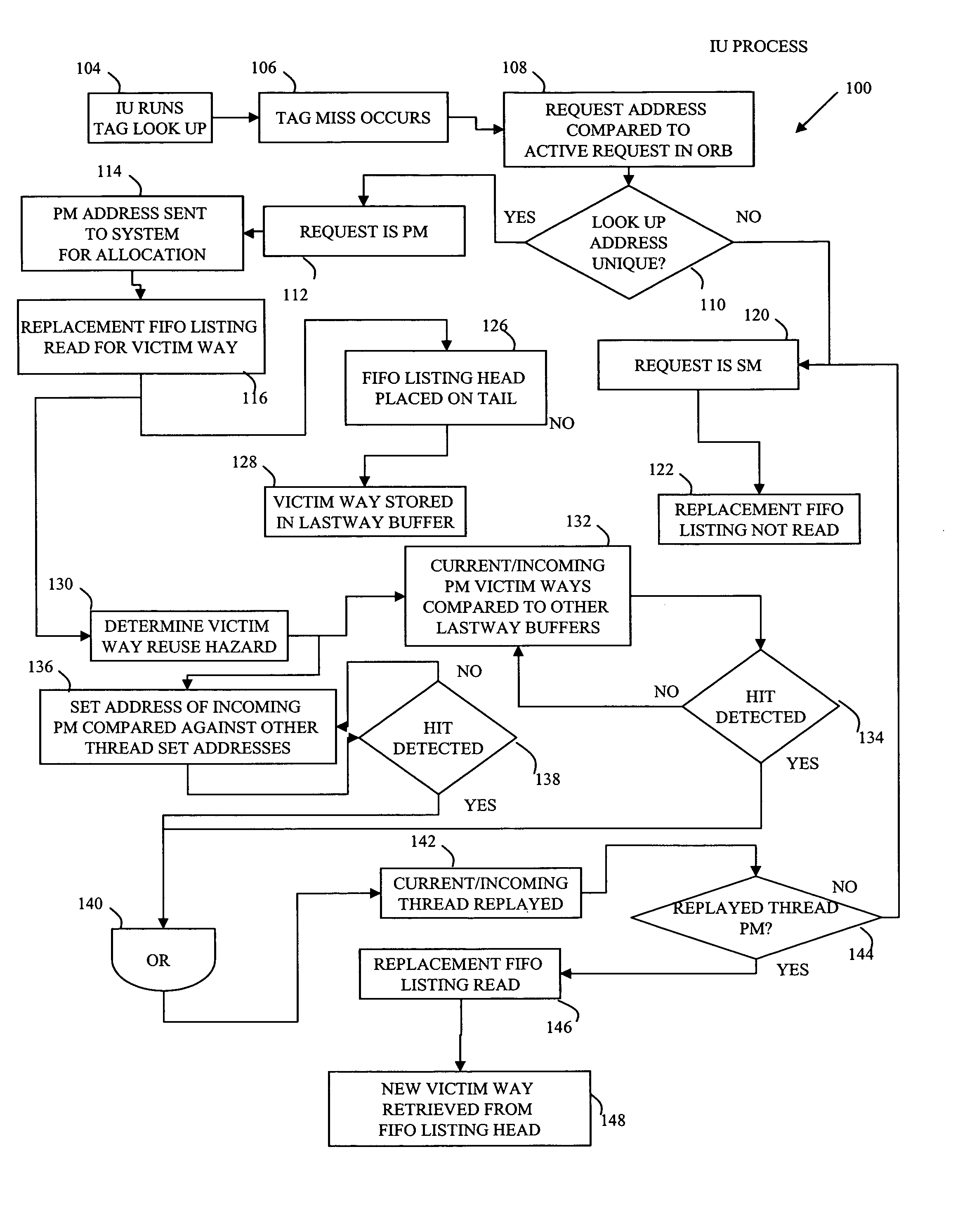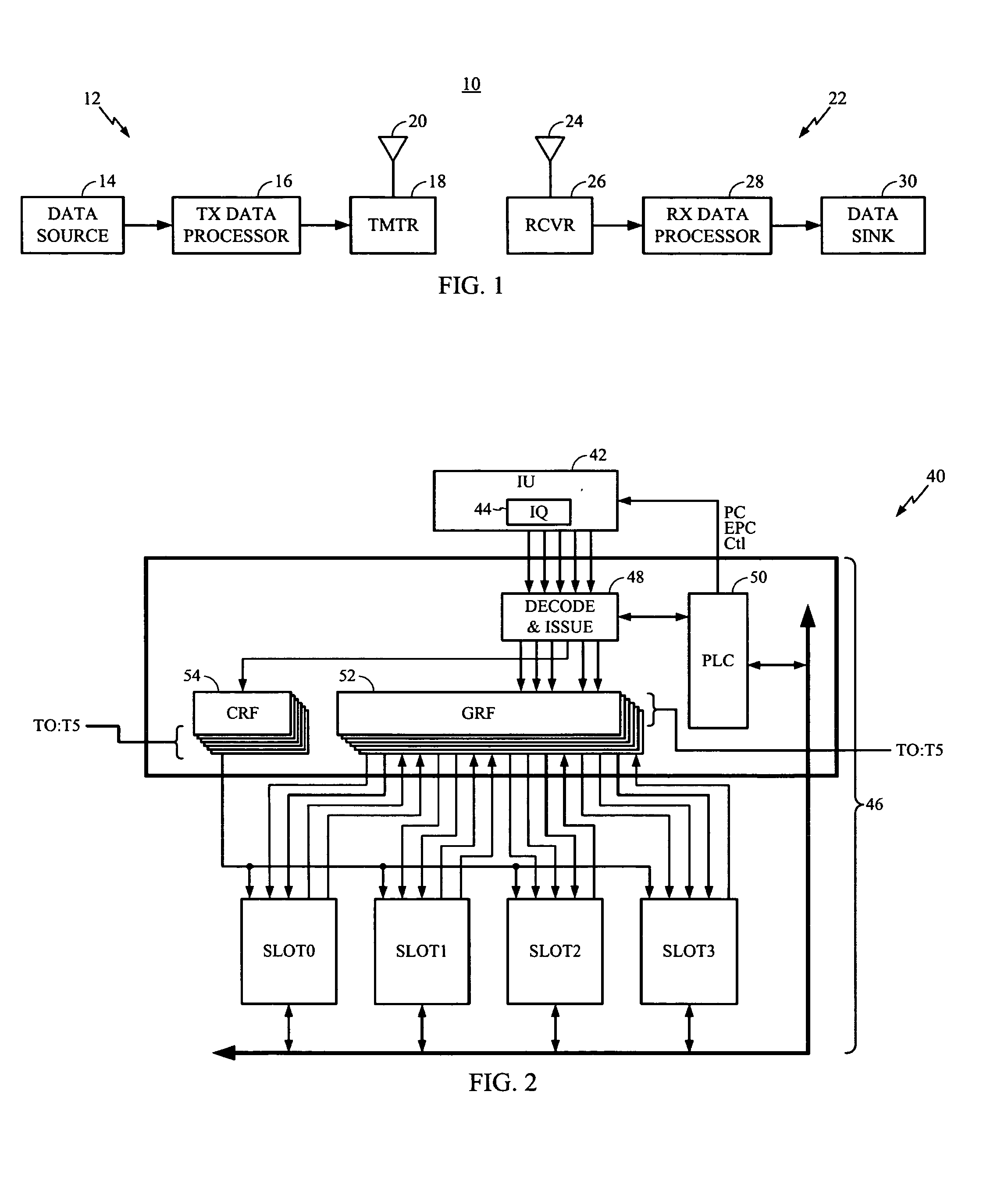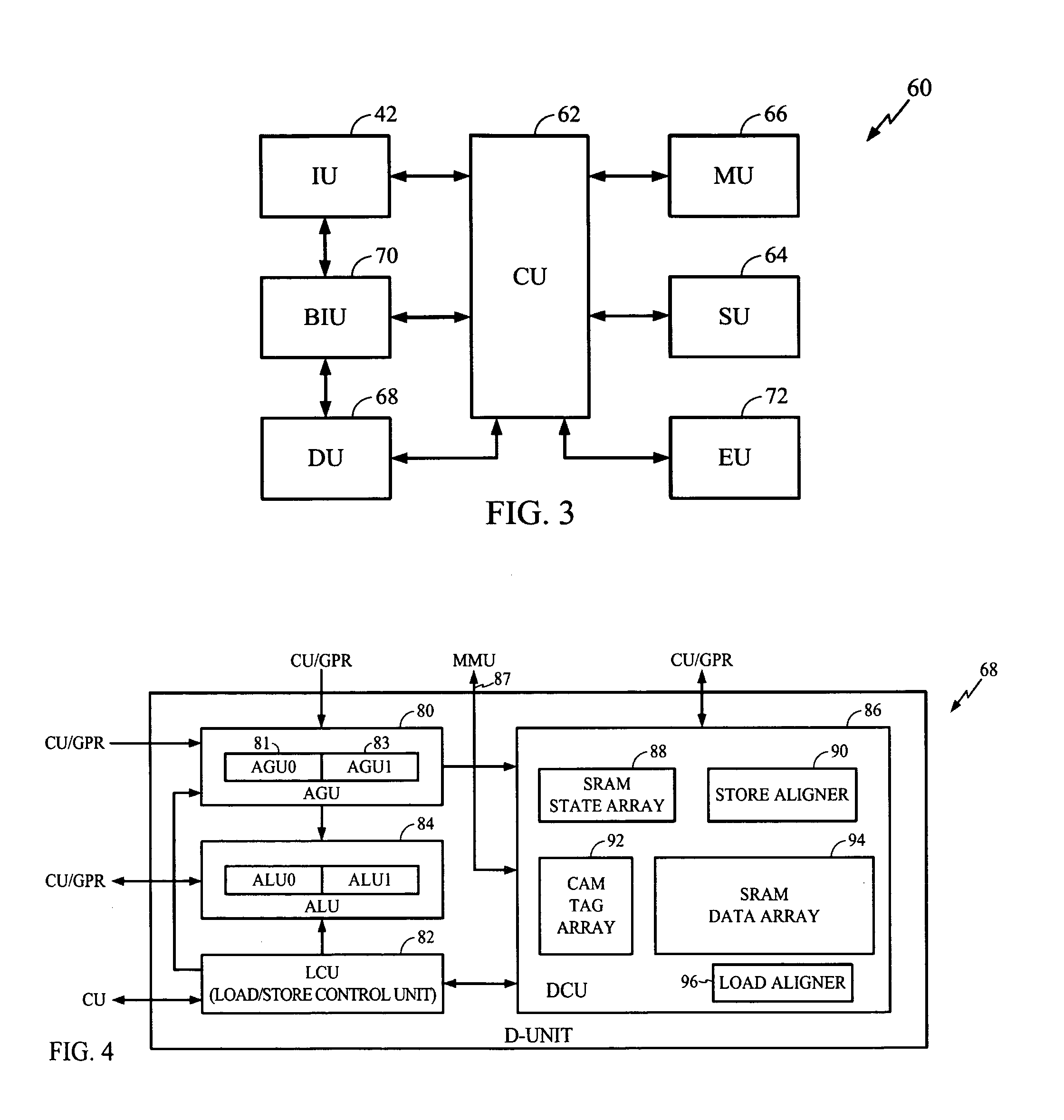Method and system for maximum residency replacement of cache memory
a cache memory and maximum residency technology, applied in the field of digital signal processing, can solve the problems of high cost of updating in terms of operational resource use and energy consumption, repetitive algorithms, and inability to meet the requirements of fast math in digital signal processing, so as to avoid incoherence
- Summary
- Abstract
- Description
- Claims
- Application Information
AI Technical Summary
Benefits of technology
Problems solved by technology
Method used
Image
Examples
Embodiment Construction
[0027]The disclosed subject matter of a method and system for maximum residency replacement of cache memory as here presented has use in a very wide variety of digital signal processing applications, including those involving multi-threaded processing. One such application appears in telecommunications and, in particular, in wireless handsets that employ one or more DSP circuits. Consequently, the following FIGUREs describe a telecommunications DSP within which one may use the present teachings. Remember, however, that the implementation here described provides but one of a virtually limitless set of applications to which the disclosed subject matter may apply.
[0028]For the purpose of explaining how such a wireless handset may be used, FIG. 1 provides a simplified block diagram of communications system 10 that may implement the presented embodiments of the disclosed data processing method and system. At transmitter unit 12, data is sent, typically in blocks, from data source 14 to t...
PUM
 Login to View More
Login to View More Abstract
Description
Claims
Application Information
 Login to View More
Login to View More - R&D
- Intellectual Property
- Life Sciences
- Materials
- Tech Scout
- Unparalleled Data Quality
- Higher Quality Content
- 60% Fewer Hallucinations
Browse by: Latest US Patents, China's latest patents, Technical Efficacy Thesaurus, Application Domain, Technology Topic, Popular Technical Reports.
© 2025 PatSnap. All rights reserved.Legal|Privacy policy|Modern Slavery Act Transparency Statement|Sitemap|About US| Contact US: help@patsnap.com



